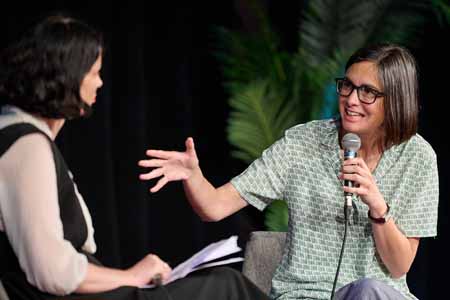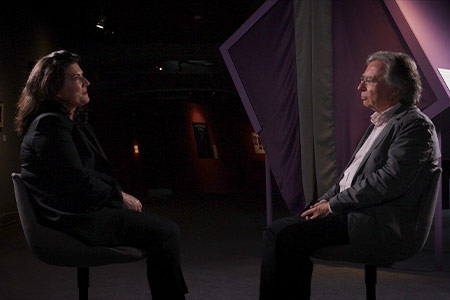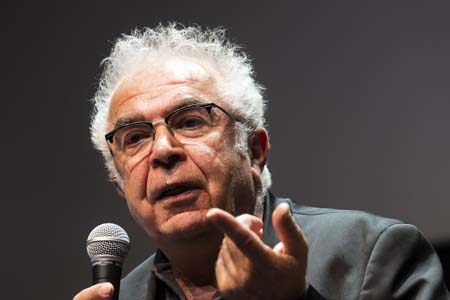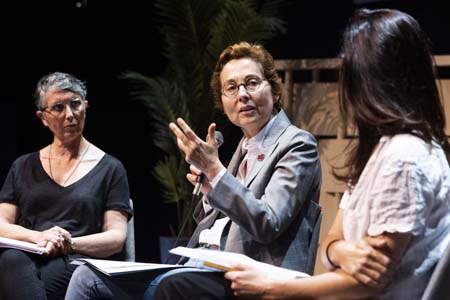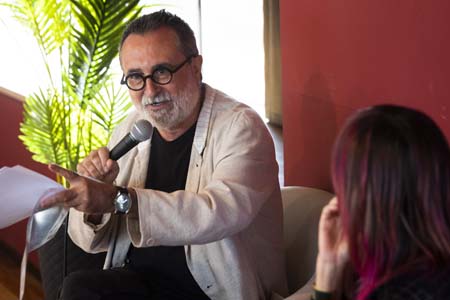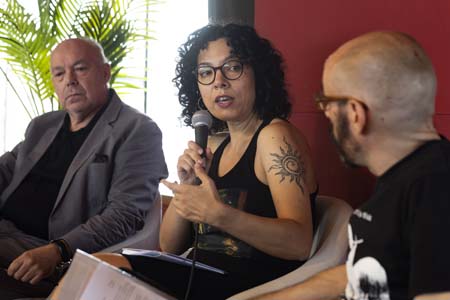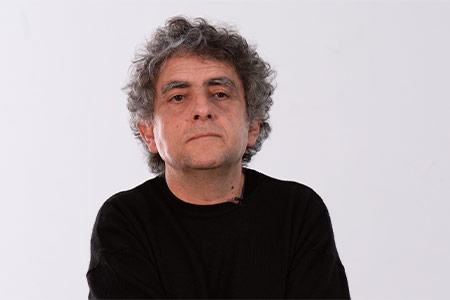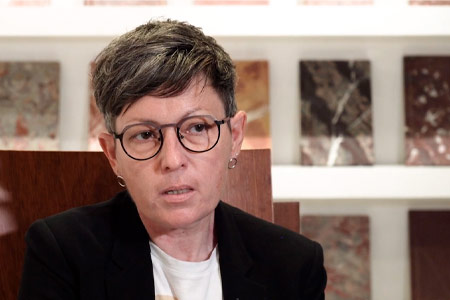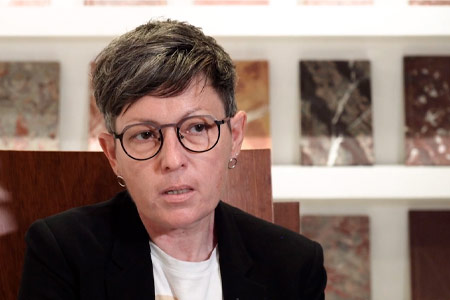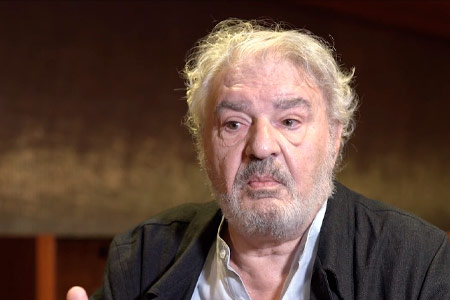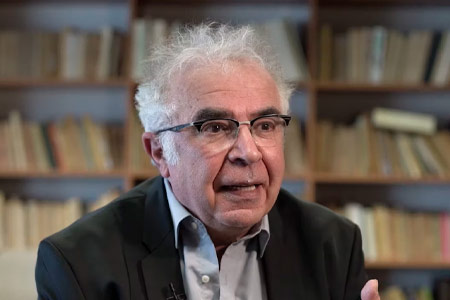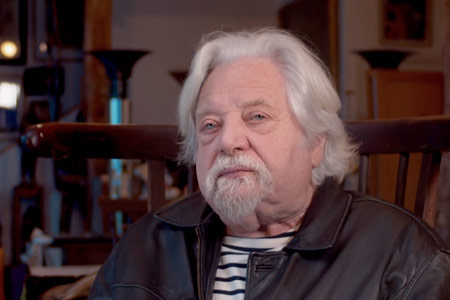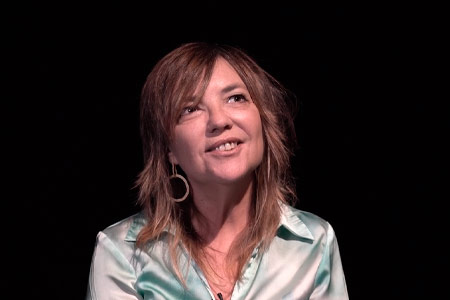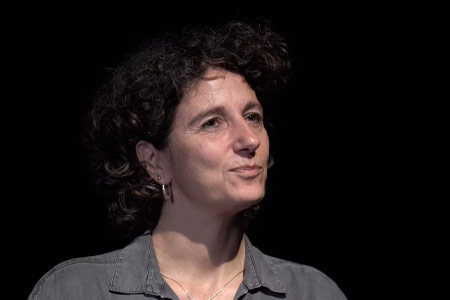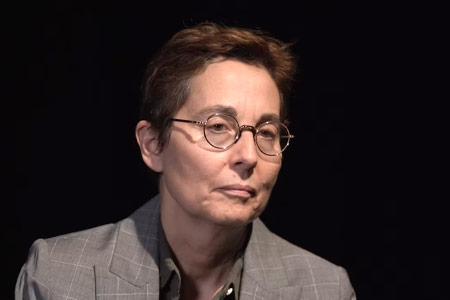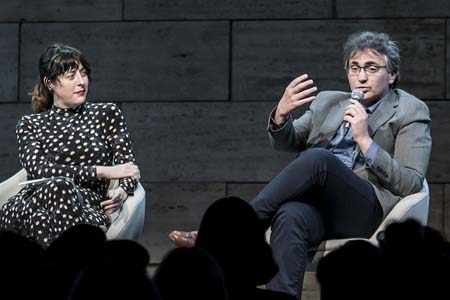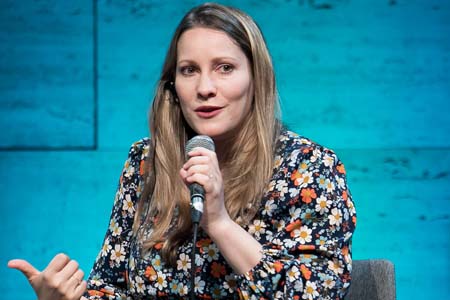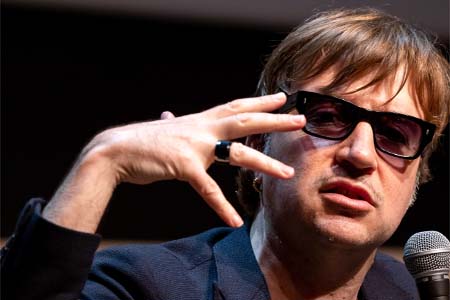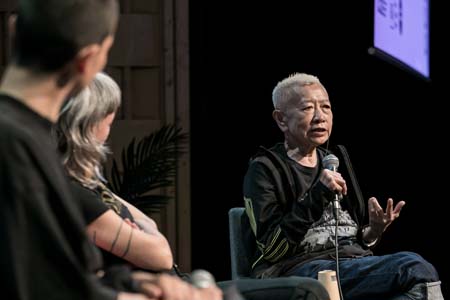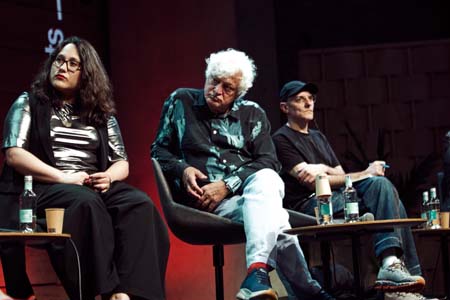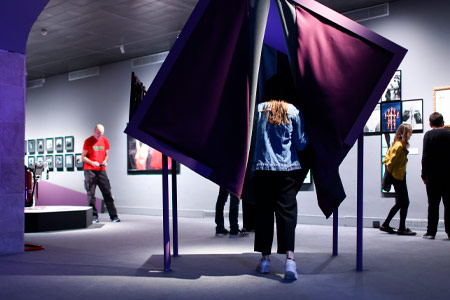Sade
Freedom or evil
An exhibition that explores the aesthetic, philosophical and political legacy of the Marquis de Sade in contemporary culture, from the early 20th-century avant-gardes to the present day.
Inés Martín Rodrigo & Mar García Puig
Words that lead the way
Writers Inés Martín Rodrigo and Mar García Puig talk about how to build new cultural references for sexual dissidence from the literary word.
Alyce Mahon and Antonio Monegal explain the importance of revisiting Sade today.
Inside the exhibition "Sade. Freedom or evil"
This conversation between CCCB exhibition curators Alyce Mahon and Antonio Monegal takes a further look into the life, works and ideas of the Marquis de Sade. Mahon and Monegal take us through the thesis and themes put forward by the exhibition and explain the importance of revisiting the figure ...
Politics
Éric Marty & Albert Mestres
The essayist Éric Marty speaks with writer and translator Albert Mestres about the political reading of Sade’s work, perhaps the dimension of his texts that is the least known to the general publica, nd its relationship with the present.
Desire
Clara Serra, Marta Segarra and Begonya Saez Tajafuerce
In the work of Sade, fulfilment of boundless desire can lead to freedom but also to evil. The philosophers Clara Serra and Marta Segarra speak about the relationship between desire and free will in a conversation moderated by Begonya Saez Tajafuerce.
Morality
Joan-Carles Mèlich & Laura Llevadot
The morality and its role when it comes to deciding what is considered socially acceptable was one of the key themes of Sade’s work. The philosophers Joan-Carles Mèlich and Laura Llevadot discuss the relationship between cruelty and morality in Sade's work.
Trangression
Juan Francisco Ferré, María Santana and Eloy Fernández Porta
Sade’s questioning the norms of gender, freedom, and evil resulted in his being imprisoned and socially ostracised. But a century later, he was to become a source of inspiration for those thinkers who wished to overturn the status quo.
Jordi Costa: “Sade is an endless and unsolvable cultural problem”
Jordi Costa, head of exhibitions at the CCCB, explains the cultural legacy left by the figure and work of the Marquis de Sade and why the CCCB chose to dedicate an exhibition to him, in which contemporary artists and thinkers take up the ideas of evil and freedom set forth by the French writer. ...
Stéphanie Genand. Who was the Marquis of Sade?
In this interview, Stéphanie Genand, researcher and lecturer in 18th-century French Literature at the University of Paris-Est Créteil, talks about the life of the Marquis of Sade (1740-1814). Sade was a long-lived author who lived under different political regimes, an experience ...
Dany-Robert Dufour. Sade and capitalist society
Dany-Robert Dufour is a philosopher and lectured in educational sciences at the University of Paris-VIII until 2015. In this interview, he shares Pier Paolo Pasolini’s view of Sade not as a representative of fascism, but as an author who exalts the individual and the sacred law of egoism. ...
Éric Marty. Sade in the 20th century
Éric Marty is a writer, essayist, teacher specializing in contemporary literature and the history of ideas, and author of the book Pourquoi le XXe siècle a-t-il pris Sade au sérieux? [Why did the 20th century take Sade seriously?] (Seuil, 2011). In this interview, he talks ...
Jean-Jacques Lebel. Sade and freedom of expression
Jean-Jacques Lebel is a visual artist, writer and creator of artistic events. In 1966 he orchestrated the happening 120 minutes dédiées au divin marquis [120 minutes dedicated to the divine marquis], leading to his arrest for obscenity and the subsequent petition for his release ...
Fictional dialogue between Ester Jordana and Michel Foucault about Sade
Ester Jordana, Doctor of Philosophy and lecturer at the University of Saragossa, converses with the philosopher Michel Foucault on the basis of a selection of texts that the French author wrote about Sade. Foucault was one of the intellectuals who, in the 1960s, began to reinterpret Sade’s ...
Fictional dialogue between Laura Llevadot and Maurice Blanchot about Sade
Laura Llevadot, lecturer in Philosophy at the University of Barcelona, talks to writer and literary critic Maurice Blanchot, based on a selection of texts that the French author wrote about Sade’s work. Starting in the 1940s, Blanchot published a series of critical essays analysing Sade’s ...
Fictional dialogue between Marina Garcés and Gilles Deleuze about the notion of sadomasochism
Marina Garcés, philosopher and writer, talks to the philosopher Gilles Deleuze, based on a selection of texts that the French author wrote about Sade’s work. Deleuze was one of the intellectuals who, in the 1960s, began to reinterpret Sade’s work.
Fictional dialogue between Marta Segarra and Simone de Beauvoir about Sade
Marta Segarra, Professor of French Literature and Gender Studies at the University of Barcelona, talks with feminist thinker Simone de Beauvoir, based on a selection of texts that the French philosopher and author wrote about Sade’s work. Beauvoir was one of the 20th-century intellectuals ...
Gonzalo Torné and Lucía Lijtmaer
From public morality to cancellation
Writer Gonzalo Torné, author of La cancelación y sus enemigos, speaks with writer Lucía Lijtmaer, author of Ofendiditos, about cancel culture.
Laura Bates
From sadist cruelty to the machosphere
Feminist writer Laura Bates, creator of the website Everyday Sexism Project, speaks with the collective Proyecto UNA about the new forms of misogyny in the digital sphere.
Albert Serra
From desacralization to myth
Cinema and its relationship with hallowed figures have changed during the last 21st century. Filmmaker Albert Serra speaks with critic and journalist Violeta Kovacsics about the relationship between myth and religion in cinema.
Virginie Despentes and Irantzu Varela
From libertinism to the right to sex
Writer Virginie Despentes speaks with journalist Irantzu Varela about libertinism from a feminist perspective in a conversation moderated by writer Lucía Lijtmaer.
Shu Lea Cheang and Quimera Rosa
Sade: from the perspective of art
Cheang and Chimera Rosa discuss how Sade's work is used to reflect on subjectivity and resistance around gender identity norms, in a conversation moderated by researcher Jara Rocha.
Laia Abril, Marcelo Brodsky, Joan Morey
Sade: from the perspective of art
On the occasion of the opening of the exhibition “Sade. Freedom or Evil”, we bring together the curators and some of the participating artists to speak about the relevance of the controversial French author in contemporary art.
Sade. Freedom or evil
An exhibition that explores the aesthetic, philosophical and political legacy of the Marquis de Sade in contemporary culture, from the early 20th-century avant-gardes to the present day.
